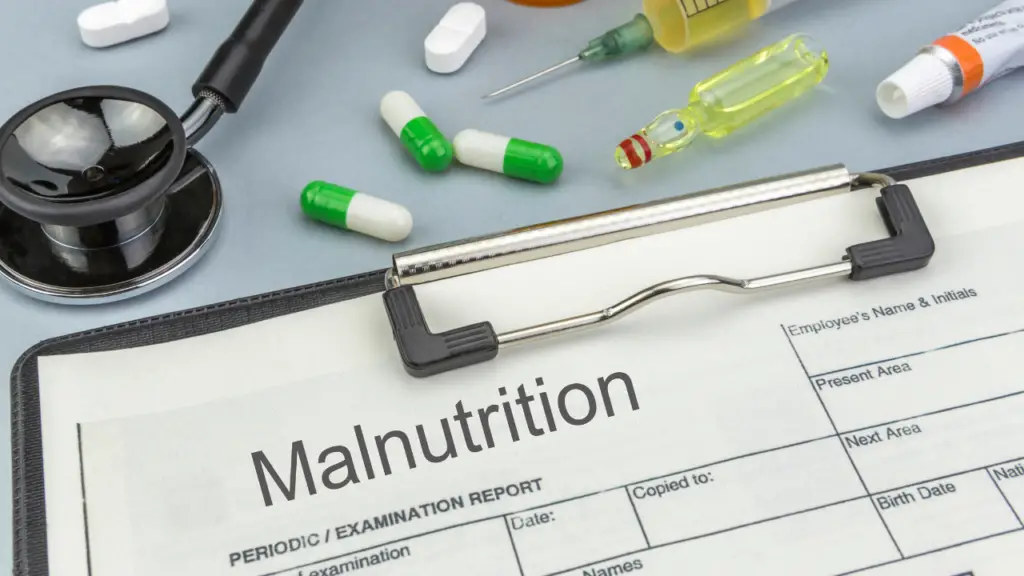Do you easily get tired during your day, without doing much at all? It happens to the best of us at times. However, in some cases, this simple problem could be an underlying cause of something much worse brewing inside your body.
Gluten-intolerant individuals often question their tiredness and the reasons behind it. After all, it may sound like the usual fatigue, but when it lingers, it can make your everyday routine feel like a burden where all you want to do is crash in your bed. So, is gluten the reason behind this tiredness? Let's find out.
Is Feeling Tired Normal?
Before you dive into a state of worry and start blaming gluten for something entirely normal, let us stop you right there. Feeling exhausted and tired on occasion, or when you've had a long day of work, can be expected. You don't need to blame your body or gluten if it's an occasional thing.

The real issue starts when the tiredness you're feeling is chronic, i.e., you've been experiencing it continuously for a while, or recurrent, which is to say that it keeps coming back. Fatigue is a term that goes beyond general drowsiness; it's when your physical and mental body does not have the motivation and energy to do anything.
In other words, being sleepy does not mean you're experiencing fatigue. One of the top symptoms of gluten intolerance is fatigue. Studies show that nearly 80% of gluten-intolerant individuals, especially celiac patients, experience chronic fatigue.
It is a concerning sign if you suddenly feel tired after eating gluten-based foods. This can indicate that it's time to visit a doctor and get yourself checked for celiac disease or non-celiac sensitivity.
Fatigue and Gluten Intolerance
When we say gluten intolerance, it consists of two primary conditions- celiac disease and gluten sensitivity. Both have a connection with fatigue as a side effect of gluten intolerance.
Celiac disease and fatigue have a stronger connection proved by various studies and experiments. More research is underway to understand the link between non-celiac sensitivity and how it causes fatigue.

Firstly, it's pretty evident that an autoimmune disease will have certain disadvantages for your body, including physical complications. In celiac disease, the body does not digest gluten compared to the digestive system of a healthy individual.
Instead, it treats gluten as a foreign invader and starts producing antibodies against it. During the process of attacking gluten through antibodies, the immune system of a celiac patient will automatically damage the small intestines.
Ultimately, whenever celiacs ingest gluten, their body lashes out in the intestines. This process brings forth a set of symptoms resulting from the havoc gluten creates in the body, one of which is fatigue. Sometimes fatigue might be the sole indicator of celiac disease, with no other persistent physical symptoms.
The case of gluten sensitivity and fatigue is a bit more complex. Since there's no autoimmune response to gluten ingestion, the body does not undergo intestinal damage.

Some studies suggest intestinal damage is possible even in non-celiac sensitivity. But for now, there's no extensive evidence to prove this statement. Therefore, the fatigue experienced by non-celiac individuals is most likely an outcome of dehydration and malnutrition due to digestive problems such as diarrhea.
Some argue that fatigue is not related to gluten ingestion for non-celiac individuals at all. Instead, they state that other factors or underlying conditions may be contributing to the problem.
Fatigue and Malnutrition
When the body does not get the daily nutritional requirement, it creates malnutrition. It may not result in severe problems for the first few days. But over time, a continuous lack of nutrients will lead to energy deprivation which will mean improper body functioning.
In damaged intestines, the nutrients get excreted from the body without being absorbed. Undiagnosed celiac disease can make this condition life-threatening when the body no longer absorbs nutrients, and their body is severely deprived.
At this point, it doesn't matter whether your diet consists of nutritious foods; the body can't absorb them anyway.

The most common nutrient deficiency in gluten-intolerant individuals is iron deficiency or anemia. Anemia causes a drastic decrease in oxygenated red blood cells produced by hemoglobin through iron.
And consequently, when the body's cells and organs aren't getting adequate oxygen supply, they can't function effectively. Less oxygen affects the body's energy levels which leads to chronic fatigue, among other symptoms.
It's why gluten-intolerant individuals are switched to a gluten-free diet immediately and given supplements to combat the nutrient deficiency and get their body back on track.
Fatigue and Refined Foods
Gluten itself may not be the sole perpetrator of fatigue in gluten-intolerant individuals. Those with non-celiac gluten sensitivity and sometimes healthy individuals too complain about experiencing fatigue after eating gluten-based foods. This fatigue may not have to do anything with gluten at all but the refined carbohydrates you're adding to your diet.
Processed foods with increased amounts of simple carbohydrates and sugar are troublemakers. Processed foods are readily absorbed in the blood and raise blood glucose levels much quicker than complex carbohydrates and low-sugar foods.
These foods overlap with gluten to some extent. Here's what we're saying- think pasta, cereal, bread, baked goods, etc. The classic versions of these foods contain gluten, and they're considered refined carbs. Neither are these processed foods nutritious, including their gluten-free substitutes.

The blood glucose level spike after drinking a soda bottle is commonly referred to as the sugar high. This excessive blood glucose spike may temporarily enable you to feel highly energetic.
But once the blood glucose regulates again, there is little to no nutrition in refined and sugary foods and drinks. Thus, making the body end up in an energy crash, where it has no energy left to power through the day.
Eliminating gluten from the diet often means excluding a significant portion of unhealthy processed foods from your diet, which can help reduce fatigue.
How to Determine If the Fatigue is Due to Gluten?
Finding out whether or not gluten is the cause behind your chronic fatigue is necessary because if it is gluten, you don't have to live through this misery; if not, there could be another underlying condition behind it.

For those who suspect gluten intolerance to be the reason, a medical diagnosis can rule out the possibility of celiac disease. Celiac disease can be diagnosed with genetic testing, especially if a first-degree relative has it, and blood tests to detect antibodies against gluten.
A doctor can tell if the fatigue is gluten-induced due to non-celiac sensitivity by prescribing a strict gluten-free diet. You can try an elimination diet to observe gluten's effects on your body without visiting a medical professional. However, reduced fatigue after going gluten-free does not always mean that you have a problem with gluten.
A Gluten-Free Diet- Is it the Solution?
A gluten-free diet may be the one-step fix to the tiredness that doesn't seem to go, but the opposite is possible too. It all depends on whether gluten is the cause of your fatigue and, if it is, the effects of it.
When talking about celiac patients, a gluten-free diet may get rid of their fatigue once and for all. But don't fall for the misconception that you should see immediate results once you implement a gluten-free lifestyle.
The intestines are healing, and it takes a few months for them to heal and absorb nutrients properly to eliminate fatigue caused by malnutrition. During this period, your nutritionist or doctor may recommend supplements to regulate your body's energy levels.
For gluten-sensitive individuals, a gluten-free diet can help tackle digestive symptoms like diarrhea that cause dehydration and nutritional deficiency.
A gluten-free diet cannot reduce fatigue if your diet consists of unhealthy food, precisely refined foods, as discussed above. Along with opting for gluten-free options, it's necessary to choose nutritious foods.

Gluten-free whole grains are preferable over-processed gluten-free substitutes. Incorporate complex carbohydrates in higher amounts than simple carbs; they should make up most of your carb intake.
If you're eating a well-balanced diet that doesn't contain gluten and the tiredness persists, some other underlying condition might be at work. You don't have another option besides consulting a doctor to determine the root of the problem.
The Next Steps to Coping with Gluten-Induced Fatigue
Accidental gluten consumption can instantly cause fatigue. A gluten-free diet helps gluten-intolerant patients, but it doesn't save them from unintentional consumption or cross-contamination. We have included a few steps you can take to get back on your feet quickly.
Energy-Boosting Foods:
Lack of energy to get through the day means your body could use all the extra nutrition you can give it. In these times, energy-boosting foods are especially beneficial in recovering from the tiredness caused by gluten.

Include unprocessed, healthy foods like fruits, vegetables, proteins, whole grains, nuts and seeds, legumes, etc. You always want to make sure to drink plenty of water as well.
Take a Break:
When your body is energy-deprived, even the simplest tasks will eventually become exhausting. It's imperative to give yourself a break and let your body heal from excessive fatigue. Adding work to your routine during this time will only deplete your energy levels resulting in complete burnout.
Get Proper Sleep:
Besides clearing your schedule, a fatigued internal system begs for sufficient sleep hours. When you're asleep, your body repairs damaged cells and produces new ones that enable the internal system to keep working.

When you don't get a minimum of 6-8 hours of sleep each day, the body does not get enough time to lay off the exertion and prepare for the next day. Proper sleep will make the body's recovery process smoother and aid in coping with fatigue in the meantime.
Final Thoughts
Fatigue as a part of life is a problematic situation where you can't do much the entire day, and it takes time to recover from it, whether the cause is gluten, refined foods, or some other physical ailment.
Your best bet is to figure out what's causing it and consult a professional alongside following a healthy diet and routine.






